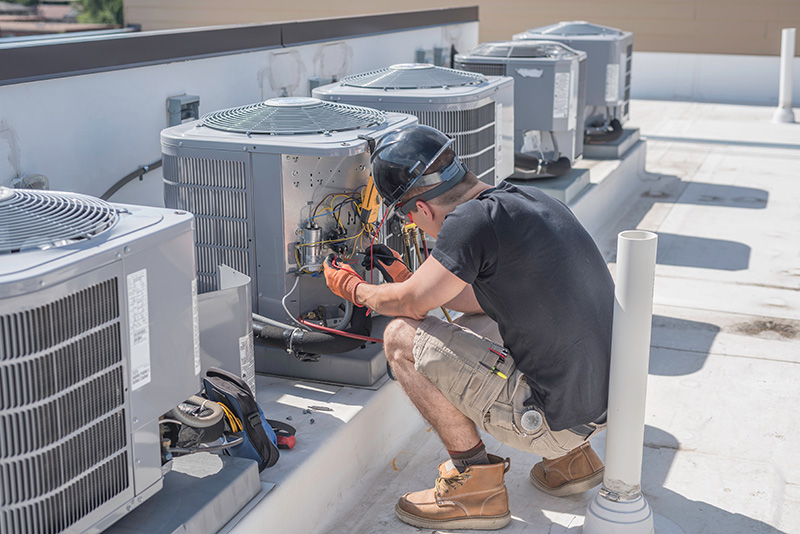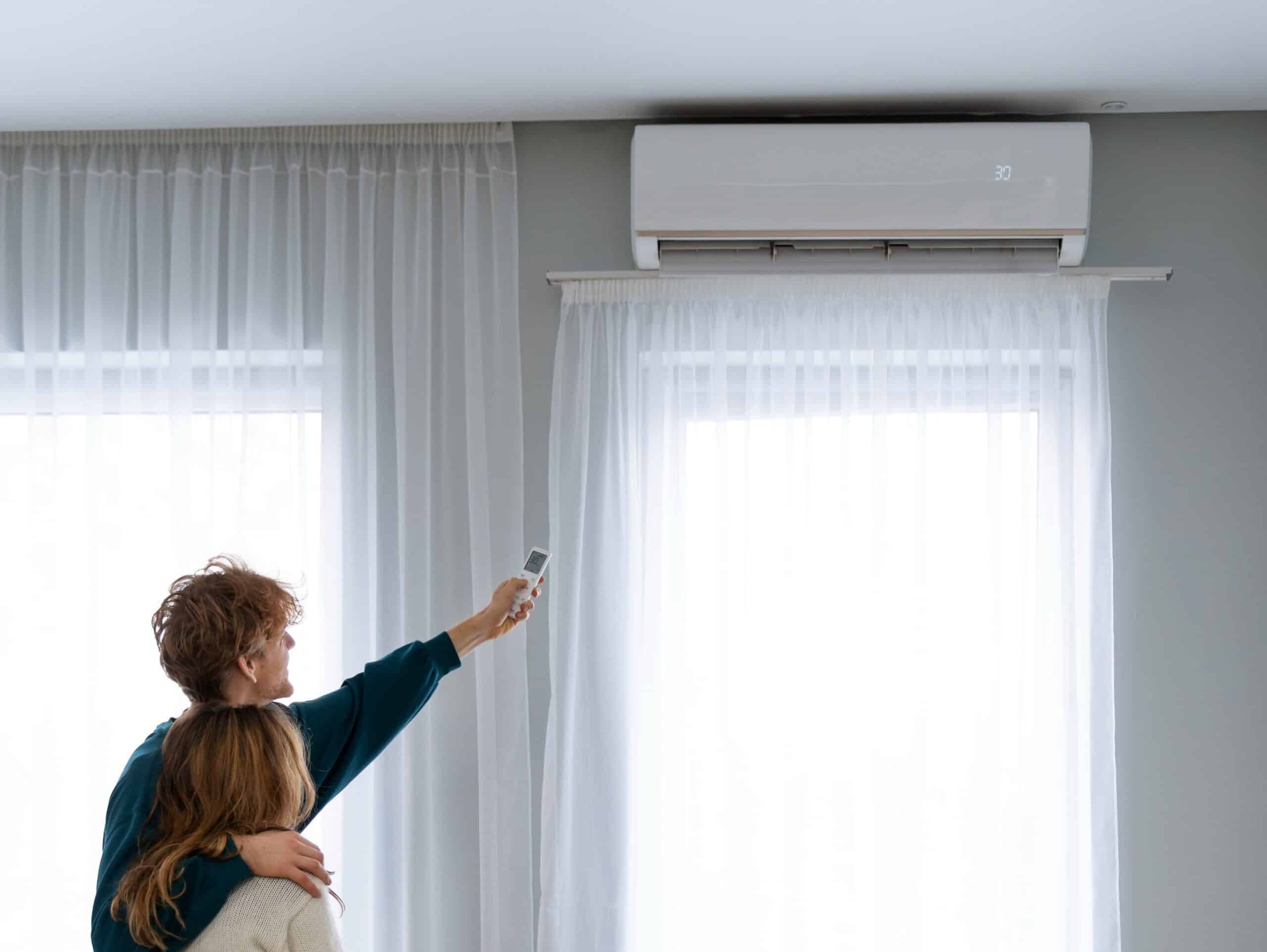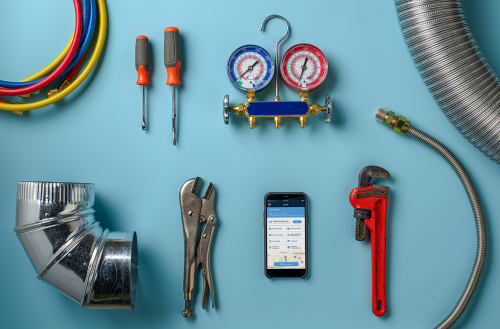Enhance Air Quality with DMAKS HVAC Professional Assistance.
Enhance Air Quality with DMAKS HVAC Professional Assistance.
Blog Article
Energy-Efficient Heating And Cooling Solutions to Save Money On Energy Costs
As energy costs continue to increase, the significance of energy-efficient heating and cooling systems becomes increasingly evident. These systems not just promise substantial cost savings on energy expenses but likewise add to a more lasting future by minimizing energy usage. With different alternatives readily available, consisting of geothermal heatpump and ductless mini-splits, residential or commercial property proprietors face a wide range of selections that can improve convenience and air top quality. Comprehending the vital functions and maintenance requirements is important to taking full advantage of these advantages. What variables should be prioritized when picking the ideal system for your requirements?
Advantages of Energy-Efficient Cooling And Heating Solutions
Energy-efficient HVAC systems provide countless benefits that expand beyond mere cost savings. By consuming much less energy, these systems add to reduce greenhouse gas exhausts, helping to combat environment modification and promote sustainability.
Additionally, energy-efficient HVAC systems frequently give enhanced comfort levels. Much of these systems feature innovative modern technology that enables much better temperature level control and improved air quality (DMAKS HVAC). This causes a healthier indoor atmosphere, which is especially essential for individuals with allergic reactions or respiratory system concerns
Moreover, purchasing energy-efficient cooling and heating systems can enhance residential or commercial property worth. As even more customers focus on energy effectiveness, homes and buildings geared up with these systems may draw in greater bids in the genuine estate market.
Kinds of Energy-Efficient A/c Options
How can property owners and organizations pick the most suitable energy-efficient cooling and heating choices for their needs? The market offers a selection of energy-efficient a/c systems, each designed to improve convenience while lessening power usage.
One choice is the variable cooling agent circulation (VRF) system, which efficiently controls the temperature in several zones within a structure. This system adjusts its cooling agent flow to match the preferred temperature level, resulting in considerable power savings.
An additional popular option is geothermal heat pumps, which utilize the planet's steady temperature level to heat and awesome areas. By transferring warm to and from the ground, these systems show remarkable efficiency, especially in modest environments.
Additionally, ductless mini-split systems provide an energy-efficient option for homes doing not have ductwork. These systems allow for zone-specific cooling and heating, lowering energy waste in vacant locations.
Finally, high-efficiency furnaces and a/c unit, with advanced SEER and AFUE ratings, supply trustworthy climate control while taking in much less power than typical models. By evaluating these alternatives, home owners and organizations can choose a cooling and heating system tailored to their certain needs and energy performance objectives.
Key Functions to Take Into Consideration

Next, check out the kind of compressor made use of in the system. DMAKS HVAC. hop over to these guys Variable-speed compressors can adjust their output to match the heating or cooling need, bring about improved convenience and power savings contrasted to single-speed versions. Furthermore, look for systems equipped with clever thermostats that offer programmable setups and remote accessibility, permitting far better control over energy intake
An additional crucial feature is the system's air purification ability. High-efficiency filters can enhance indoor air quality and reduce power consumption by making certain the system runs efficiently. Consider the kind of refrigerant used; modern systems typically employ environment-friendly refrigerants that have a lower ecological effect.
Last but not least, guarantee that the system is compatible with zoning modern technology, which enables tailored temperature control in different locations of your home, enhancing convenience while decreasing power use.
Tips for Choosing the Right System


Following, consider power effectiveness rankings, especially the Seasonal Power Effectiveness Proportion (SEER) for cooling systems and the Yearly Gas Use Efficiency (AFUE) for heater. Greater rankings show greater effectiveness, which can cause substantial savings on energy costs with time.
In addition, evaluate the kind of HVAC system that best suits your way of life and spending plan. Alternatives include air conditioning, ductless mini-splits, and heat pumps, each with its own set of advantages and disadvantages.
Don't ignore the relevance of correct setup and sizing; an incorrectly sized system can cause ineffectiveness and boosted wear. Seek advice from with a specialist Heating and cooling professional to get professional suggestions customized to your home's distinct requirements. This thorough method will certainly make certain that you select an energy-efficient HVAC system that fulfills your demands and spending plan successfully.
Upkeep for Optimal Performance
When the ideal cooling and heating system is in place, continuous upkeep More hints comes to be key to making certain ideal effectiveness and longevity. A properly maintained system operates extra efficiently, leading to reduced energy intake and lowered utility bills. Routine inspections and tune-ups need to be arranged at the very least twice a year-- once before the air conditioning period and as soon as prior to the heating season.

Homeowners must likewise be attentive concerning checking their a/c system's performance. Unusual noises, changing temperatures, or boosted power costs can indicate underlying issues that require immediate focus. By resolving these concerns without delay, homeowners can prevent costly fixings and expand the life-span of their systems.
Spending in an upkeep plan with a qualified service technician not only improves efficiency however additionally gives assurance, knowing visit our website that the system is running at its best. DMAKS HVAC. Normal upkeep is consequently important for maintaining power effectiveness and reducing overall functional prices
Conclusion
To conclude, energy-efficient a/c systems offer a practical option for reducing energy bills while improving comfort and air quality. By incorporating innovative innovations and choices such as geothermal heat pumps and ductless mini-splits, property owners can achieve considerable energy financial savings and add to environmental sustainability. Mindful factor to consider of system attributes and continuous maintenance additionally ensures optimal performance, making energy-efficient systems a sensible investment for both economic and environmental benefits.
Report this page